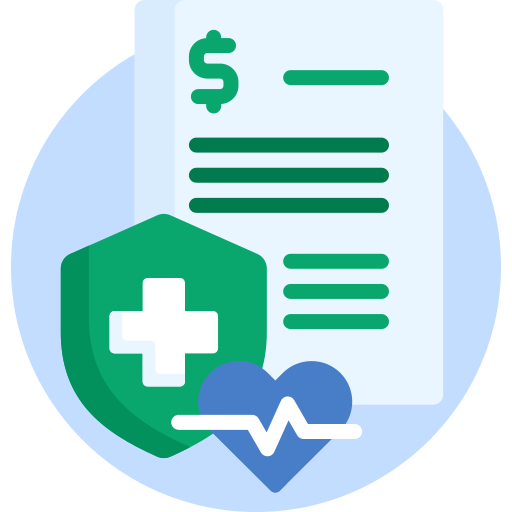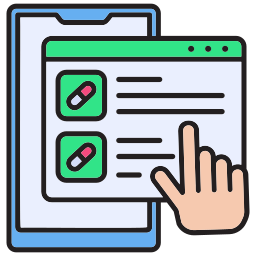Electronic Health Records (EHR) have evolved significantly since their inception, transforming how healthcare providers store and access patient information. Initially created to digitize paper records, EHR systems now support real-time updates and comprehensive medical histories. This innovation has become a cornerstone of modern healthcare, improving care coordination, reducing errors, and streamlining operations. The global EHRs market reached USD 27.42 billion in 2023, with projected growth to reach USD 41.87 billion by 2033.
Artificial intelligence has made remarkable strides in healthcare, offering applications ranging from diagnostics to predictive analytics. AI helps doctors analyze complex datasets, identify patterns, and aid decision-making processes. The synergy between AI and healthcare advancements is reshaping patient care, as AI can assist in diagnosing diseases faster, personalizing treatment plans, and reducing administrative burdens.
AI integration into EHR systems is becoming a major focus in healthcare technology. AI in EHR systems allows healthcare providers to shift through vast amounts of data, enabling quicker, more accurate decision-making. AI's ability to predict patient outcomes and suggest optimal treatment plans is driving better care management. The industry is moving toward smarter, more efficient healthcare delivery as AI and EHR converge. This integration improves patient outcomes and simplifies the complexities of managing healthcare data, setting the stage for future innovations.
Benefits of AI in EHR Systems
✅ Improved Diagnostic Accuracy
AI in EHR systems enhances diagnostic precision by identifying patterns in patient data. For instance, AI can detect early warning signs of diseases like cancer by analyzing medical histories, test results, and doctor’s notes. It reduces human error and ensures accurate diagnoses, which is particularly important for complex conditions.
✅ Faster Data Analysis
AI speeds up data analysis within EHR systems, enabling healthcare providers to extract relevant information from vast datasets faster. By analyzing unstructured data such as clinical notes, AI reduces the time spent on administrative tasks. It allows healthcare professionals to spend more time on patient care, while AI handles data sorting, pattern recognition, and even clinical decision support.
✅ Predictive Analytics for Patient Care
AI helps predict future patient outcomes by analyzing existing medical data. For example, AI algorithms can predict the likelihood of readmissions or complications following surgeries. This allows healthcare providers to take preventive measures, improving patient care and reducing hospital costs. Predictive analytics aids in personalizing treatment plans, ensuring that patients receive the care that best suits their medical needs.
✅ Streamlined Administrative Tasks
AI significantly reduces the burden of administrative tasks in EHR systems. It automates repetitive processes such as appointment scheduling, billing, and coding, which are typically time-consuming. AI systems can complete these tasks faster and more accurately, minimizing the chances of errors and freeing up healthcare staff to focus on direct patient care.

✅ Enhanced Clinical Decision Support
AI in EHRs provides clinicians with valuable decision support by offering evidence-based recommendations. It processes large volumes of data to suggest treatment options, track medication interactions, and flag potential risks. It helps doctors make well-informed decisions faster, improving overall patient outcomes.
✅ Better Data Accessibility
With AI, EHR systems can quickly pull relevant data from patient records, ensuring that healthcare providers have the information they need at their fingertips. AI organizes and filters vast datasets, presenting clinicians with a clear overview of patient histories, test results, and treatments, which enhances workflow efficiency and speeds up decision-making.
✅ Reduction in Human Errors
AI reduces human errors by automating data entry and analysis processes within EHR systems. This ensures accuracy in patient records, medication prescriptions, and treatment plans. By minimizing errors, AI improves patient safety and decreases the legal and financial risks associated with medical mistakes.
✅ Cost Reduction
AI-driven EHRs reduce operational costs by automating routine processes and improving predictive maintenance. By forecasting equipment failures and identifying inefficiencies, AI helps healthcare organizations prevent costly downtimes and reduce labor costs. This allows institutions to save resources while maintaining high-quality care
✅ Resource Optimization
AI improves resource management by optimizing staffing levels, inventory management, and resource allocation in healthcare facilities. AI can predict patient inflow, helping hospitals allocate staff and resources more efficiently, reducing wastage, and improving overall operational performance.
✅ Interoperability and Data Sharing
AI facilitates interoperability between EHR systems, making sharing data across platforms and healthcare providers easier. The seamless data sharing enhances collaboration among healthcare professionals, leading to better patient outcomes and more cohesive care plans. AI ensures that critical patient data is accessible to the right people at the right time.
Related Read: The Future of Interoperability in Healthcare
Use Case of AI in EHR
How AI Transformed Childbirth Management and Achieved Significant Cost Savings
AI integration into EHRs played a pivotal role in transforming childbirth management for our clients. By harnessing machine learning, the platform provided accurate delivery time estimates for pregnant women, allowing healthcare providers to plan better and reduce unnecessary interventions. This predictive capability improved clinical efficiency and helped in making data-driven decisions, particularly in labor management.
The integration of Epic, combined with SMART-ON FHIR technology, enabled real-time data updates and automated post-delivery processes, ensuring that all necessary details were promptly recorded in the EHR. This helped streamline the entire workflow, ultimately enhancing patient care.
The results of AI integration were remarkable, demonstrating its real-world benefits. The implementation led to a 15% reduction in average delivery time, a 34% improvement in cesarean delivery rates, and an average cost savings of $23,500 per case. By automating data collection, ensuring secure data exchange, and improving overall accuracy in decision-making, AI reduced operational costs and helped healthcare providers focus on what matters most—delivering safe and efficient care to mothers and infants. This case underscores how AI-driven EHR integration can make a tangible impact on healthcare outcomes.
Related Read: Decoding SMART on FHIR for Healthcare Interoperability
The Impact of AI on Electronic Health Records (EHR)
1️⃣ How the Growth of AI Will Impact the EHR Industry
As artificial intelligence (AI) grows, it is transforming industries, and the EHR sector is no exception. AI in EHR allows for better data processing, faster retrieval of patient records, and more accurate diagnoses. The global AI in the healthcare market is expected to reach $187 billion by 2030, with a significant portion dedicated to improving EHR systems. AI's role in healthcare will shift from assisting with basic tasks to becoming a core component of data management and decision-making processes.
2️⃣ Transformation of Healthcare Delivery Models
The integration of AI in healthcare is changing how medical services are delivered. With AI in EHR systems, healthcare providers can offer more personalized and precise treatments. It facilitates a move towards value-based care, focusing on patient outcomes rather than the volume of services provided. Additionally, AI promotes preventive medicine by analyzing patient data to identify potential risks before they escalate into more serious conditions, helping healthcare providers intervene early.
3️⃣ Shift Towards Value-Based Care
The healthcare industry embraces value-based care, where success is measured by patient outcomes rather than the number of procedures performed. AI and EHR systems create opportunities for healthcare providers to track patient health over time, providing better, data-driven insights that lead to improved care. By utilizing AI, doctors can monitor trends and predict which patients might need more attention, ultimately driving better patient engagement and satisfaction.
Related Read: The Road to Value-based Healthcare: How Interoperability Paves the Way
4️⃣ Emerging Business Opportunities
The rise of AI in EHR has opened up new business opportunities, particularly for companies specializing in AI-driven solutions. Startups and established tech companies alike are collaborating with healthcare providers to develop AI-powered EHR tools. These partnerships lead to innovative solutions that streamline healthcare operations, improve data accessibility, and reduce administrative tasks. With AI projected to continue its growth, new market entrants are seizing opportunities in this rapidly expanding sector.
5️⃣ Workforce Evolution
As AI continues to integrate with EHR systems, healthcare professionals must adapt to new roles. The demand for AI expertise drives the need for continuous learning and the creation of new positions, such as AI data analysts and healthcare technologists. Doctors and nurses become familiar with AI tools that assist in diagnostics and treatment. This shift highlights the importance of ongoing education in AI and data analytics to stay competitive in the healthcare workforce.
6️⃣ Long-term Healthcare Outcomes
The long-term impact of AI and EHR integration is promising for patients and healthcare providers. AI can reduce costs by minimizing errors, automating administrative tasks, and streamlining data management. It boosts patient satisfaction by delivering faster, more accurate diagnoses and personalized care plans. Over time, this integration will help healthcare systems become more efficient, improving patient outcomes and reducing the overall cost of care.
How can HealthConnect Copilot help you integrate AI into EHR systems?
The integration of AI in EHR systems is transforming healthcare by making clinical data more accessible, accurate, and actionable. EHRs store large amounts of patient information, but the real value lies in how this data is analyzed and utilized. AI is helping healthcare providers move beyond simple data entry by offering predictive insights, streamlining administrative tasks, and improving diagnostic accuracy. For instance, AI tools can analyze patient records to predict health outcomes and assist in personalized treatment planning. The combination of AI and EHR systems allows healthcare providers to manage patient data more efficiently, driving better clinical decisions and improving overall care.
HealthConnect CoPilot can be a powerful tool for integrating AI into your existing EHR systems. By providing customizable solutions, it bridges the gap between AI technology and healthcare practices. It enables smoother data exchange, making patient information available for real-time analysis and reducing administrative burdens. Through its AI-driven features, we can help healthcare providers make informed decisions faster, improving patient care while minimizing manual efforts. Whether it’s automating routine tasks or enhancing data analytics, HealthConnect CoPilot ensures that healthcare teams can fully use the potential of AI in EHR systems to achieve better outcomes.
- How will AI help change EHR?
AI in EHR will enhance data accuracy, streamline administrative tasks, and offer predictive insights to assist healthcare providers in diagnosing, treating, and managing patient care efficiently.
- What are the benefits of integrating AI into EHR systems?
AI in EHR systems improves decision-making, reduces manual errors, speeds up documentation, and enhances patient outcomes by analyzing large volumes of health data quickly and accurately.
- How does AI in EHR improve patient care?
AI enables personalized treatment plans by analyzing patient history and identifying patterns in data, allowing for more precise and timely care recommendations.
- Can AI reduce the administrative burden on healthcare providers using EHR systems?
Yes, AI automates routine tasks like coding, documentation, and claim submissions, freeing healthcare providers to focus more on patient care and reducing the overall administrative workload.
- How secure is AI integration with EHR systems?
AI-driven EHR systems prioritize data security by employing advanced encryption and access control measures to ensure compliance with healthcare regulations like HIPAA, protecting patient information from breaches.

Pravin Uttarwar, CTO of Mindbowser
As the CTO of Mindbowser, a healthcare-focused software development company, I am dedicated to delivering cutting-edge digital solutions that transform patient care and operational efficiency. With over 16 years of experience and as an MIT alumnus, I specialize in healthcare interoperability, FHIR-compliant systems, and AI-powered platforms, crafting scalable products and architectures tailored to the unique needs of healthcare providers and enterprises.
I have spearheaded the development of over 100 products and platforms, guiding them from concept to full-fledged solutions. My expertise extends to scaling remote tech teams, driving EHR integrations, and building secure, cloud-native healthcare solutions. By shaping technology visions and roadmaps, I help clients achieve long-term growth and success in the rapidly evolving healthcare landscape.
HealthConnect CoPilot enabled us to access real-time patient health data through integration with Apple HealthKit, enhancing care delivery while maintaining HIPAA compliance. This led to personalized care and improved outcomes for patients.

AI-enhanced Obstetrics Clinical Decision Support Platform
HealthConnect CoPilot's integration with Epic's Hyperspace has transformed our workflow. Automated post-delivery examinations and HL7 protocol use ensure accurate updates to Epic. Their expertise empowers informed decision-making in childbirth

Top Provider for Customized Healthcare Solutions
HealthConnect CoPilot's helped us to integrate with leading tracking devices such as Apple Watches and Fitbit. This integration enables effortless syncing of health data, providing users with real-time insights displayed directly on our flagship products: smart mirrors and digital calendars.

A Provider of Customizable Display Solutions
Post a comment Cancel reply
Related Posts
Epic Wisdom Explained: Features, Benefits, and Why It’s the Future of Dental EHR
Dental care has traditionally existed in its bubble, separate from the hospital EHRs, invisible to…
FHIR Versions: The Past, The Present & The Future
The Fast Healthcare Interoperability Resources (FHIR) standard has revolutionized healthcare data exchange, enabling seamless interoperability…
What Are CDS Hooks? A Simple Guide for Healthcare Providers
CDS Hooks are changing how clinical decision support (CDS) works inside EHRs, bringing real-time, context-aware…
The Challenges and Benefits of EHR Integration for Health Tech Companies
As digital health companies continue to innovate and develop cutting-edge healthcare solutions, one of the…
Streamlining Behavioral Healthcare with Epic EHR Integration
Behavioral healthcare providers are facing an increasing demand for streamlined systems that can integrate multiple…
How A Maternal Health Startup Is Revolutionizing Charge Capture in Epic?
Helping Moms Shouldn’t Involve Wasting Time or Resources Maternal health startups are doing some of…









